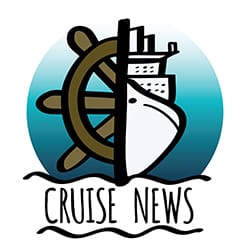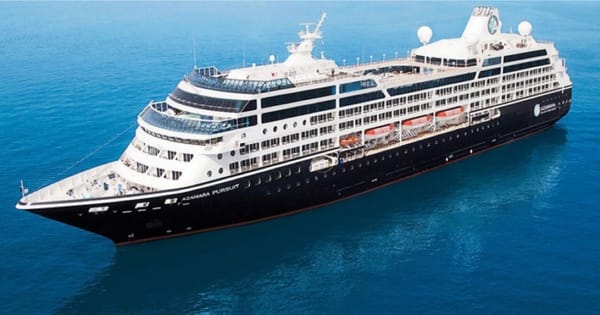Juneau votes down cruise ship docking restrictions

In recent developments, Juneau, Alaska, has been a focal point of contention regarding cruise tourism restrictions. Local residents narrowly voted against the "Ship-Free Saturdays" initiative aimed at prohibiting large cruise ships from docking on Saturdays and July 4th, a decision that follows mounting concerns over overtourism.
This ballot measure, which captured significant attention and debate within the community, saw a majority of voters—out of 9,633 cast—opting to keep the cruise ships coming, with 5,788 voting “No” and 3,751 voting “Yes.” This outcome reflects a broader struggle between local sentiment about tourism impacts and the economic benefits that cruise tourism brings to the city.
The Context of Cruise Tourism in Juneau
Juneau, with a population of approximately 32,000, experienced a record influx of visitors last year—about 1.65 million tourists, many of whom arrived via cruise ships. On peak days, the city welcomed upwards of 20,000 cruise passengers, prompting concerns among residents about the capacity of local infrastructure and the preservation of community character.
Despite this overwhelming visitor count, the local economy benefits significantly from the cruise industry, which generates approximately $30 million annually in direct spending and contributes around $3.7 million in revenue for the municipal government during peak tourist days.
Opposition to the Initiative
The opposition to the "Ship-Free Saturdays" initiative was notably organized and well-funded. A coalition named "Protect Juneau’s Future," which included cruise lines and local businesses, spent over $600,000 to counter the measure, highlighting the potential economic repercussions of limiting cruise ship access.
Leaders within this coalition emphasized that maintaining cruise access is essential for the city's economic viability. They argued that imposing restrictions on tourist access would jeopardize jobs and hamper the local economy, which has heavily relied on the tourism sector, especially cruise tourism.
Calls for Balance
While local residents expressed their concerns over overtourism, many acknowledged the need for a balanced approach to tourism management. Proponents of the ballot measure, like Karla Hart, who spearheaded the initiative, felt that the outcome should serve as a wake-up call for city leaders and the cruise industry to implement measures to mitigate tourism's impact on local life.
In Hart's view, the substantial number of votes supporting the measure indicates that a significant portion of the community is concerned about the effects of mass tourism. She sustained that it is vital for leadership to engage with local residents to find viable solutions moving forward.
The Future of Cruise Tourism in Juneau
In response to the growing concerns over overtourism, the City of Juneau and cruise industry representatives have already taken steps to manage visitor numbers. As part of their agreement, the city has capped the number of large cruise ships docking each day at just five, starting next year. Additionally, daily passenger limits will be set at 16,000 from Sunday to Friday and 12,000 on Saturdays.
This move, an attempt to provide a more manageable flow of tourists throughout the cruise season from April to October, is indicative of the evolving dynamics between local interests and the tourism sector.
Long-Term Implications for Juneau's Tourism Strategy
The defeat of the "Ship-Free Saturdays" initiative does not signify a complete alignment of community and industry interests. Many residents believe that continuous dialogue is necessary to address the ongoing concerns related to tourism and to preserve local quality of life amid fluctuating tourist numbers.
Potential future initiatives may emerge as locals increasingly advocate for their voices to be heard in the tourism management conversation. The recent vote may serve as a starting point for further discussions about sustainable tourism practices tailored to meet the specific needs of Juneau's community.
Governor's Influence and Broader Industry Trends
Alaska's tourism gained unprecedented popularity this past year, as highlighted by various industry stakeholders. Analysis points toward a heightened demand for cruise trips to Alaska, further complicating the local narrative surrounding cruise tourism.
Josh Weinstein, president and CEO of a prominent tourism company, indicated that the desire for Alaska-based vacations has surged, making it even more important for Juneau to find a balance between accommodating tourists and protecting the interests of local residents.
Conclusion
The recent ballot measures and discussions surrounding Juneau's cruise tourism signify a crucial crossroads for the city. As it navigates between economic dependence on cruise tourism and the need for sustainable practices, maintaining an open dialogue among all stakeholders will be essential for fostering a mutually beneficial environment.
FAQs
What was the "Ship-Free Saturdays" initiative in Juneau?
The "Ship-Free Saturdays" initiative was a ballot measure that aimed to ban large cruise ships from docking in Juneau on Saturdays and July 4th to address overtourism concerns.
How did residents vote on the "Ship-Free Saturdays" initiative?
Residents voted against the measure, with 5,788 voting “No” and 3,751 voting “Yes,” reflecting a majority support for maintaining cruise access on those days.
What economic impact do cruise ships have on Juneau?
In 2023, cruise visitors generated approximately $30 million in direct spending and contributed around $3.7 million in revenue to the municipal government during peak tourist days.
How is Juneau addressing overtourism concerns?
Juneau has imposed caps on the number of large cruise ships allowed to dock each day and set limits on daily passenger counts as part of a broader effort to manage tourist influxes.
What does the outcome of the vote mean for future tourism initiatives?
The vote outcome may encourage more community discussions and potential future initiatives aimed at sustainable tourism practices that balance local needs with economic interests.




